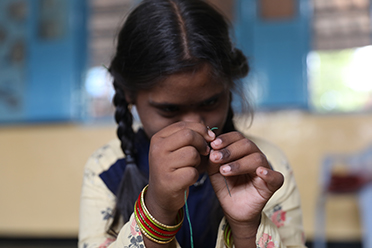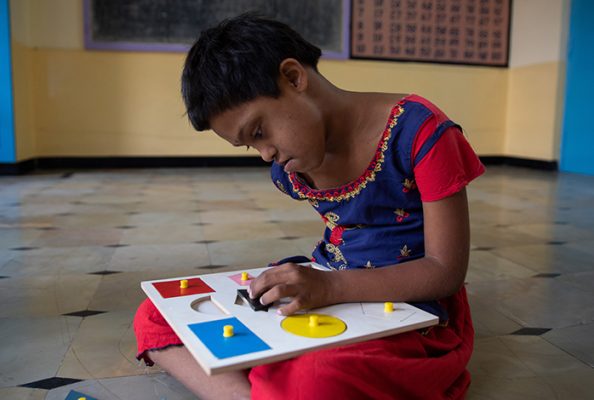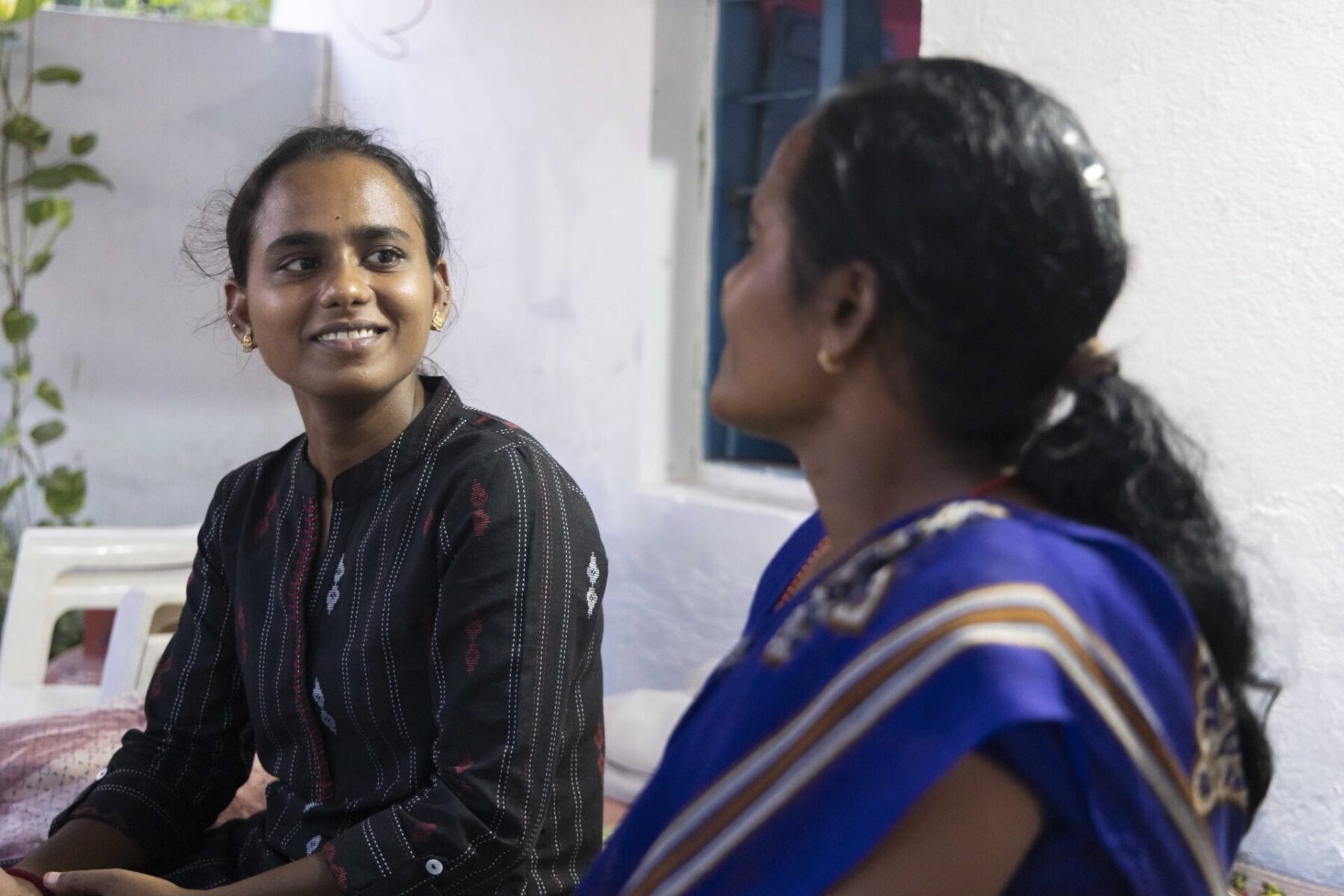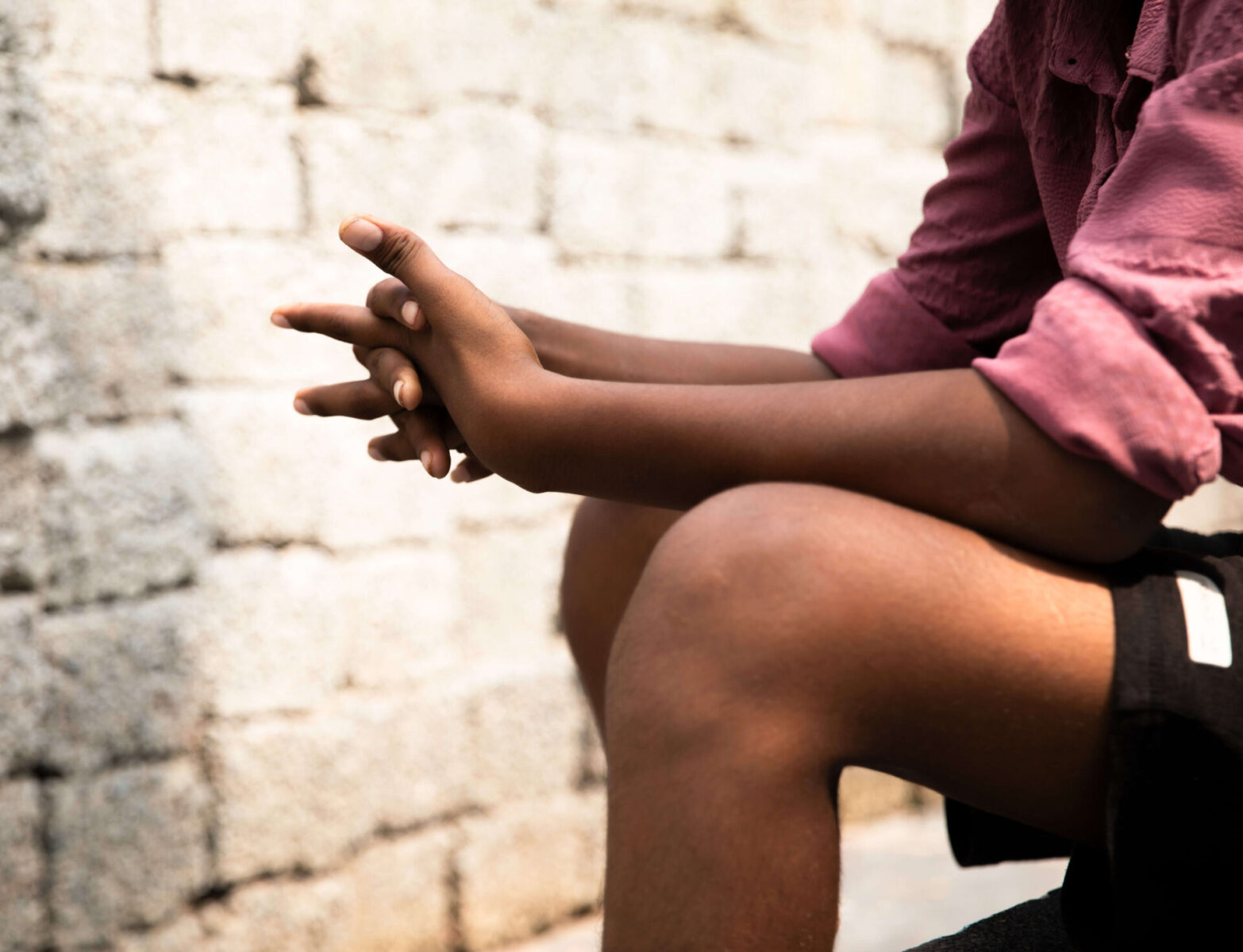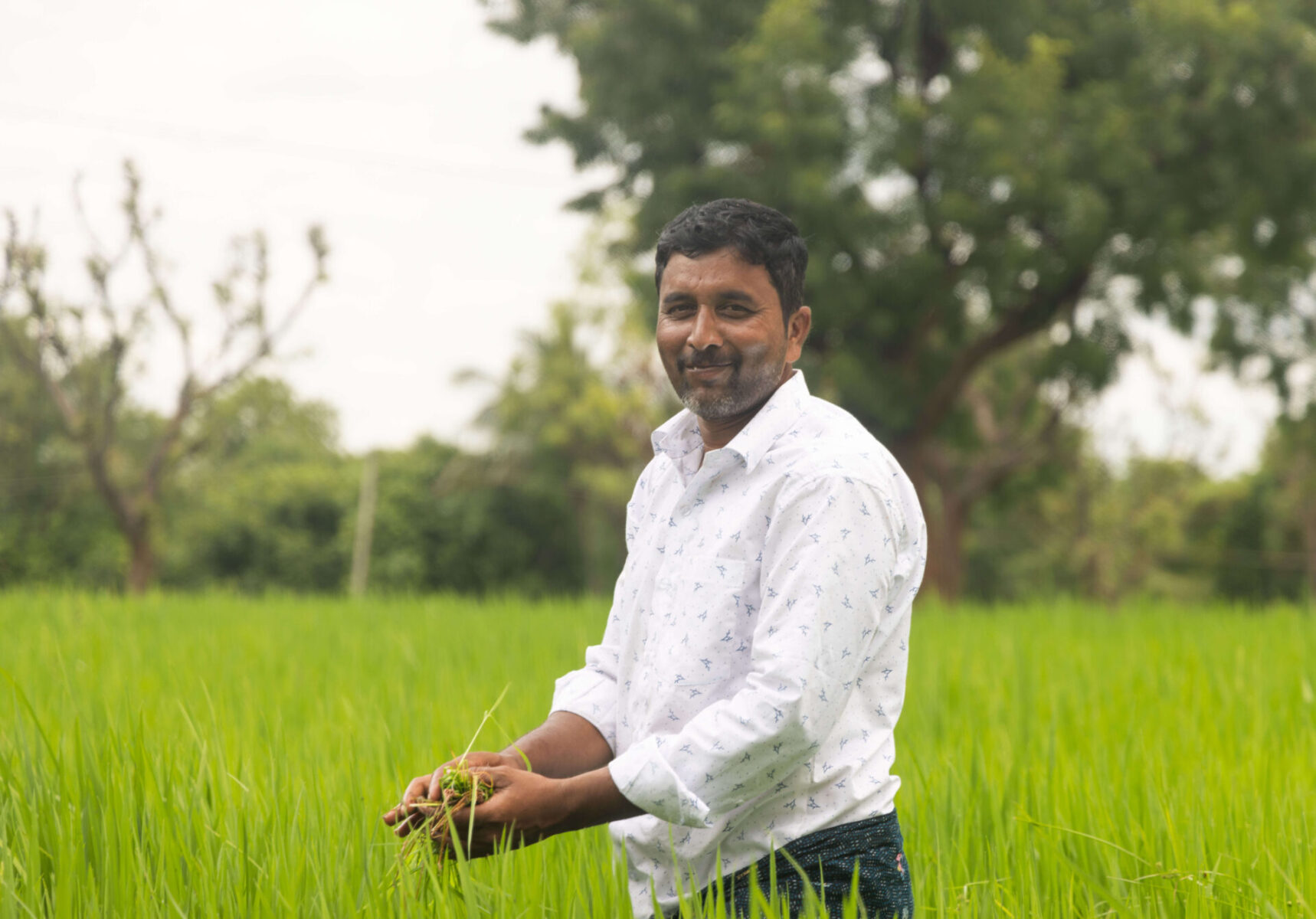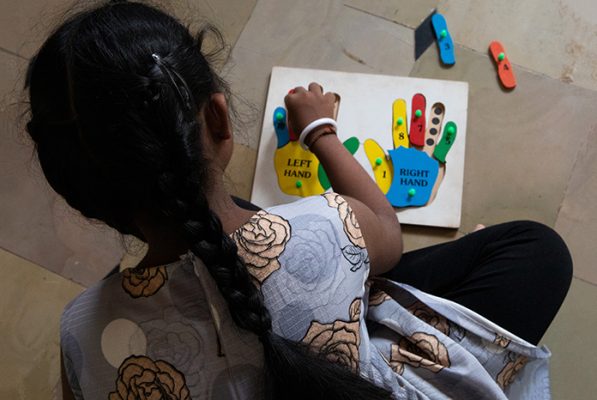
Amidst the buzzing murmur of the children in the hallways, a burst of loud laughter resounded. It is the laughter of 11-year-old happy girl Lahari (name changed to protect identity), who has been in the RDT Center for Children with Intellectual Disabilities since 2019. After responding to her teacher with laughter, she returned to her colourful board.
Her teacher says the board activity will help her improve hand-eye coordination. Like many children in the ID centre, Lahari, too, was affected with Trisomy 21, also known as Down Syndrome, a genetic disorder that includes certain congenital disabilities, learning problems and facial features.
Though there is a lack of clear numbers regarding persons with intellectual disabilities in India, some studies show that there are 31 million (or 3.1 crore individuals) with ID. Some estimates show that 12 million (1.2 crore) children live with disabilities in the country, while 1% have access to school.
Lahari was born in RDT Kalyandurg Hospital, the first child of Nagabushan and Dhanalakshmi. Until Lahari was 3 years old, the couple couldn’t understand why their daughter could not speak. During a consultation with the paediatrician at the hospital, the doctor suspected that she might be affected with Down Syndrome. The doctor suggested going for further tests, which later confirmed the disability. “It was shocking to know that she has Down Syndrome; she was our firstborn child; everything at that moment was dark for us as a family,” said Nagabushan.
The time flew by, and with a lack of special education facilities in their vicinity, Dhanalakshmi enrolled Lahari in the same school as her brother. Two years passed, and there was no improvement in her. Lahari was growing up, but she couldn’t do anything. When Nagabhushan and Dhanalaksmi enquired around, they learned about RDT ID centres and enrolled Lahari in the RDT Bukkarayasamudhram inclusive school and ID centre.
Children With Intellectual Disabilities Need Your Support And Patience
12-year-old Vandana (name changed to protect identity) was the second child of Nagamani and Krishna. She was born at home. Until she reached the age of 3, she did not walk. Further investigations at the RDT Hospital confirmed that Vandana was affected by Trisomy 21.
“My husband and I are daily wage workers; we had no idea what this disability is. We did not know how to deal with it,” said Nagamani. Lack of access to rehabilitation programmes and awareness of the disability among the parents is the first hindrance to the social inclusion of children with ID.
“To take Vandana to the nearest Bhavita centre, we need to travel 16 kilometres every day. My husband and I need to work to earn food for our family, and it is impossible to take her there, and the lack of residential facility there forced us to keep her at home,” explained Nagamani.
On the suggestion of RDT Staff, Nagamani enrolled Vandana in the RDT ID centre, the same as Lahari. Imtiaz, in charge of the centre, says that it is essential to improve the children’s attention span to teach them further and help them learn.
People Say Hurtful Things About Children With Intellectual Disabilities
Every child is screened based on the severity of the disability, from mild to moderate and severe; based on their abilities, different skills are taught. “We believe that every child is unique and deserves special attention. We set personalised goals for every child and work with them to improve their condition, right from hygiene to functional academics such as reading, writing, numbers, time and money,” said S Prasad, a teacher at the centre.
The children at the centre go home for a week every month and continue their tasks. “Regular interaction with family and friends improves the condition, and we believe that it helps in rehabilitation,” said Imtiaz.
“We encourage parents to take children out during their stay at home. Parents should take children with ID to family functions and social situations. This will improve the perception of ID in society and also helps children to mingle with others,” he added.
“People don’t talk in front of us, but they talk behind us. It is very hurtful, and we got used to it over the years,” admitted Nagamani.
“People say different things, but I feel happy whenever she comes home. We are seeing gradual improvement in her; she can now bathe by herself and wear her clothes. It fills us with happiness to see her do things,” asserted Nagabhushan.
Here Is How You Can Help These Children
The ID centres aim to integrate children with intellectual disabilities into society and teach them essential skills: carrying out everyday tasks and gaining employable skills.
Before 18, children are taught pre-vocational skills such as notebook making, cattle rearing, and supporting families in their household businesses. At the age of 18, individuals are integrated into society by helping them find employment in and around their villages.
RDT currently runs 7 Centers for Intellectual Disabilities across Anantapur District with 422 (262 boys, 160 girls) children with intellectual disabilities, including Down syndrome, microcephaly, hydrocephalus, Autism, ID with cerebral palsy, Multiple Disabilities and others. RDT runs a dedicated Special Olympics Bharat Center, which hosts 71 children with ID. In the last decade, children from this centre won 66 medals in events held in various places worldwide.
“I love my daughter Lahari, no matter how she is. Every child deserves love, respect and dignity,” Nagabhushan welled up. This International Down Syndrome Day, we urge everyone to treat children with intellectual disabilities with and same love, concern and dignity we give to every child.
Text: Ernest Abhishek Paul
As published on Youth Ki Awaaz

